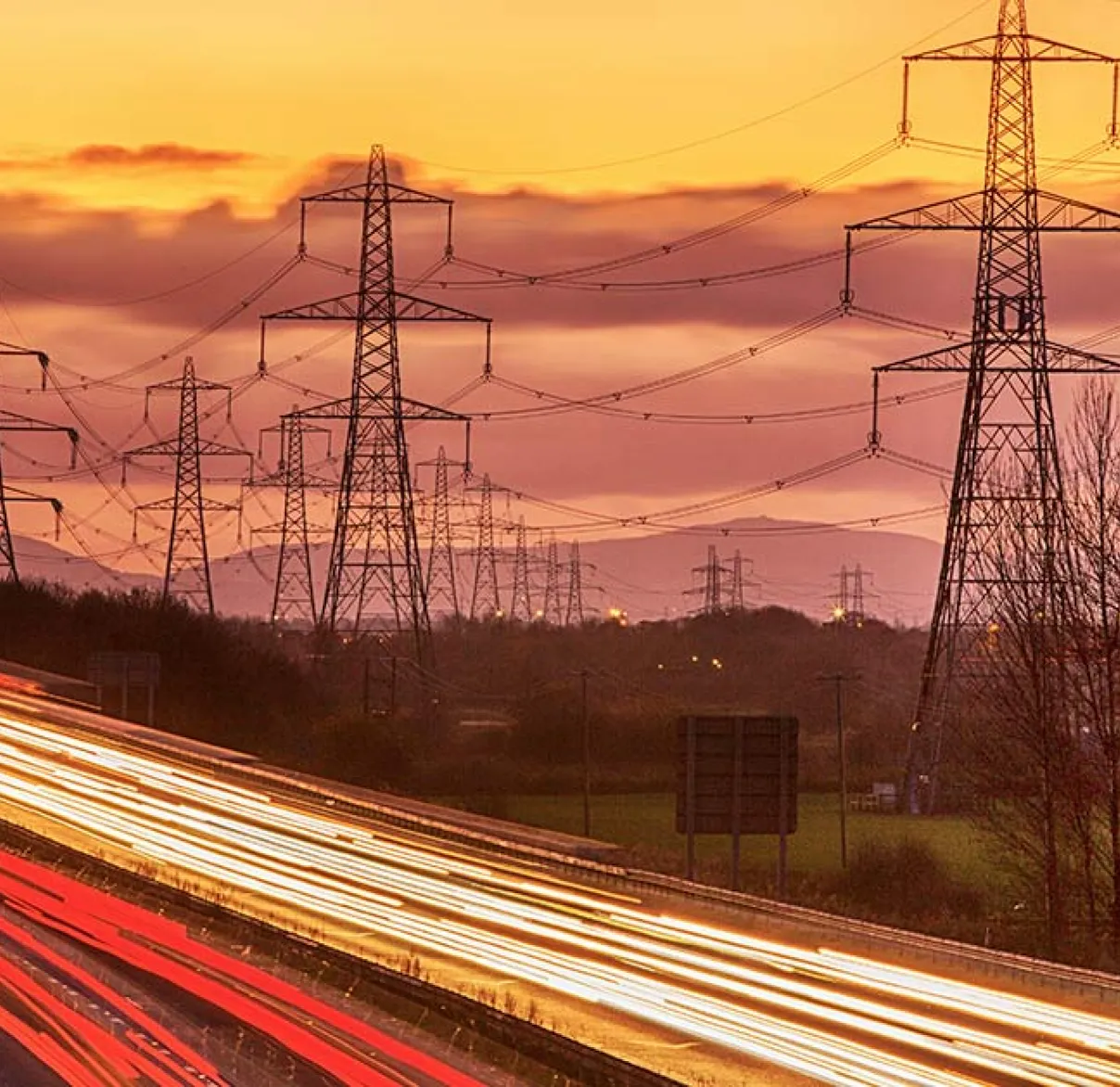Review of the week: The good oil
Like virtually everything else, the cost of energy is much higher than it used to be. Combined with higher interest rates, it should keep squeezing economic growth in the coming months.

Article last updated 22 July 2025.
QUICK TAKE:
Oil prices have risen 20% over the summer to $90 a barrel, putting upward pressure on UK inflation
Strikes at Australian huge gas plants increase concerns about gas prices as far afield as Europe
Higher energy prices have hurt energy-intensive German manufacturers, and helped drive the economy into recession
Energy prices are extremely important for global economies. Not exactly a ground-breaking insight, we’ll grant you. But it wouldn’t be too much of a stretch to say that all economic activity is energy converted into stuff and experiences.
There’s labour, too, but for most jobs that’s a little drowned out these days by the productivity boost delivered by the tools we use. If not for all the gadgets that are standard issue in our age, the internet that connects them and the energy that runs them, there is no way that you would be able to read now what I have written only a couple of hours ago. If the power goes out, Santa Claus would be our only hope of delivery.
But that would be the least of your worries. There are other, much more important, tasks being done right now all around the country – all around the world – all completely reliant on power. In the UK, and most of Europe for that matter, natural gas is the primary source of electricity, so strikes at huge gas plants in Western Australia that have knocked out about 5%-7% of global supply are a concern.
Our reliance on power is a good thing. It shows how far we’ve come. Back in ancient Rome, their unit measure of fuel was a loaf of bread. Labour was the predominant driver of economic activity. If you wanted a bigger job done quicker, you threw people at the problem. These days, you’re more likely to shell out for better equipment. Rather than 100 people, a digger, perhaps. A computer and accounting software package is a better choice than 100 scribes.
Our unit of measure for energy today is ‘oil equivalent’, which underscores what moves the needle. When comparing energy from different sources – whether renewable electricity, gas, coal or hydro – it’s typically converted into units that are the same amount of energy you would get from a barrel of crude. Oil – and its gaseous cousin – are crucial to functioning societies because, despite all the rhetoric and good intentions, they are still the most efficient and reliable sources of delivering huge amounts of power to most areas (unless you are blessed with lots of sun and/or wind). This needs to change – and is changing – but right now, carbon fuels are essential to functioning societies, whether rich or poor.
Anyone who owns a petrol or diesel car will know this intimately, and will have noticed that the cost of a barrel of oil has risen rapidly this summer. Since mid-June the price of Brent Crude has jumped 20%, punching through the symbolic $90 a barrel last week. So why has the price risen? As we noted before, economic activity is simply energy, so better-than-expected performance from many large nations, especially the US, means more people are buying oil. Meanwhile, OPEC, the cartel of oil-producing emerging markets, has reduced export quotas, squeezing supply. You don’t need to take economics 101 to know that this will mean higher prices.
This reduction in supply has led Western governments to accuse OPEC of manipulating prices, which is laughable. It’s sort of in the name, isn’t it? Yet putting OPEC’s machinations to one side for a second, it’s interesting to think about oil, just for a moment, as a thing in itself. We constantly talk about it like the magic juice that is just sort of there and powers everything. But it costs money to find, drill, refine and transport. It has a cost to its producers. And for OPEC countries, which supply about 40% of the world’s oil, it’s best to think about each member nation as a great big oil company, with costs and overheads. The IMF, the US Federal Reserve and third-party strategists believe the oil price needed for the average OPEC nation to pay its bills and breakeven is roughly between $75 and $80.
How much should a litre of petrol be? Often, it comes down to a number arbitrarily determined by each of us, perhaps when we first learned to drive or a general average of the past few years. Given the inflation we’ve experienced, that number may no longer be high enough.
The bad oil
Oil prices, of course, drive inflation too.
There’s a so-called ‘breakeven’ rate of inflation that is embedded in the price of global inflation-linked bonds. This is the average annual rate of inflation at which an inflation-linked bond will return the same amount as a traditional, fixed-rate government bond. So if a 10-year government bond yields 10%, say, and a 10-year inflation-linked bond is yielding 5% (which then rises with inflation) you can assume that investors expect 5% inflation a year, and the ‘breakeven’ is 5%. This breakeven is very highly correlated with oil price movements.
With the barrel price at roughly the level of a year ago, petrol price falls won’t pull down the UK’s inflation rate as much as it has in past months. And while falling energy bills, which are driven by the regulatory price cap, are likely to shave 1.25% from headline inflation by the end of the year, the CPI inflation benchmark is now expected to rise from 6.8% to 7.1% when it’s released on 20 September. Will that force the Bank of England (BoE) to hike rates further? Another 25-basis-point hike to 5.5% the day after the inflation release is expected, but investors are still mostly hoping that the BoE will leave rates there for the remainder of the year. With costs higher across the board – petrol, rents, mortgages, food, power – investors believe that inflation will essentially cool itself as households and businesses rein in spending as costs bite. For that to happen, wage growth would need to slow markedly.
The BoE’s Decision Makers Panel survey of firms delivered more signs of a coming recession: a deterioration in businesses’ expectations of employment. This survey is one of the BoE policymakers’ favourite bits of evidence, and it also brought good tidings for future inflation. Companies surveyed expect inflation to be 4.8% in a year’s time. Albeit, they also expect wage growth to be running at 5% in a year’s time. However in a separate release, UK job recruiters reported the fastest slump in job demand in three years. The KPMG REC survey measure of permanent staff placements dropped to 38.9 in August, the 11th straight decline and the steepest fall since June 2020. Such a reduction in labour demand should lead to lower wage growth.
Looking across the Atlantic, hopes of a soft landing in the US – where inflation is vanquished without causing a recession – have risen significantly in recent months. Where once an American recession was almost universally expected, now investors are evenly split on whether or not it will occur. We believe it will arrive, albeit we had thought it would arrive quicker than it has.
The wide belief that US recession can be avoided, combined with interest rates at or near their peak, resilient company earnings and hopes that AI will drive greater profits has helped buoy global markets this year, particularly in America. Because we expect the swift and sharp hike in borrowing costs to drag down economic growth, we think owning ‘quality’ and ‘defensive’ businesses makes most sense. We are wary of markets that are more sensitive to changes in economic growth, so places like Europe and emerging markets. The headline examples of these risks are Germany and China, both quite ‘cyclical’ markets.
China is struggling as demand at home has sharply fallen because of the huge weight of a slow-motion property market collapse. China's property market is groaning under enormous debts and an ocean of unneeded (as well as unfinished) homes. To put this into some sort of context, one report from late 2021 estimated that China had 65 million empty units, or 20% of all its housing stock. That’s enough to house everyone in France. It’s likely this has grown much wider since then. This imbalance is dragging the economy down hard because so much of the nation’s money is tied up in these millstones. That makes companies go pop, leaving workers unemployed, and terrible investment losses frighten households and discourage them from spending. This is why China has this year slumped to deflation (a negative inflation rate, i.e. general prices are falling) even as the rest of the world battles rampant inflation.
German industrial production fell again in July, with its manufacturing output plunging 1.8% on the previous month mainly due to a near-10% fall in vehicle production. Now some of that is due to the usual August factory holidays. But not all of it. Manufacturing fell in many sectors. Energy-intensive production remains almost a fifth lower than before the start of the Ukraine war. Germany is in recession. And while other eurozone economies aren’t doing as poorly, the bloc as a whole hasn’t grown since the fourth quarter of last year. China weakness, lessened government spending and the continued bite of higher interest rates will likely overpower the real income gains of households as inflation fades, in our opinion.
This means that the oil price could struggle to push much higher (although forecasting the price of oil over the short-term is fraught with error).
If you have any questions or comments, or if there’s anything you would like to see covered here, please get in touch by emailing review@rathbones.com. We’d love to hear from you.



